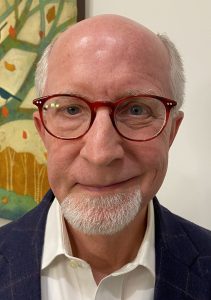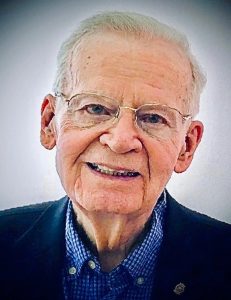How does a moment morph from repeatably mundane to irreversibly transformative?
That question has echoed through my mind countless times across more than 46 years — since an unrecorded lecture in an unremarkable classroom on an otherwise unmemorable autumn morning changed my life forever.
In the fall of 1976, I took a course called Sociology 101 at Hardin-Simmons University. I can’t tell you why I registered for that class. Probably because I needed three hours of social studies. Most likely because the professor, Julian Bridges, was known to be kind and I translated that to mean “easy A.”

Marv Knox
Bridges did not have a reputation as a scintillating lecturer. But he captured my attention from the start. A former missionary to Mexico, he spiced his presentations with stories about people he knew and situations he experienced on the mission field. His tales tapped the imagination of a former Royal Ambassador who grew up in little Baptist churches where the most exciting thing that ever happened was the occasional visit from a missionary family.
It all seemed so exotic. Until it seemed so real.
I don’t remember the specific point of the professor’s lecture that morning. But I remember the light through the windows and the warm air in the room when, mid-lecture, everything changed.
He described how college students in Mexico would think about something or other we were discussing in our class. He talked about young Mexicans — people my age — he knew. He talked about how they thought.
And then it happened.
For the first time in my life, I realized my worldview — the perspective of a small-town, small-church kid from a farming-and-ranching village at the top of the Texas Panhandle — was not the normative worldview for every person on earth.
“For the first time in my life, I realized my worldview … was not the normative worldview for every person on earth.”
Just writing that sentence embarrasses me. How could I have lived 20 years and never realized, never really accepted the idea that culture and language and family and history and geography and an infinite variety of other influences cause people who don’t share my culture, language, family, history, geography and other influences to think differently than I think?
And here’s what really blew my mind: They might be right, and I might be wrong.

Julian Bridges
Although I didn’t know it in the instant, that moment changed the course of my life. I finally realized life experiences provide context and tone and texture for how all people see the world. And that understanding changed how I think about and deal with others. Recognizing that people who are different possess valid reasons for how they think and act nudged me toward empathy and compelled me toward humility, at least a little bit.
Learning to appreciate — not to mention respect — other worldviews also changed how I express my faith. It schooled me in how to treat people. And it definitely changed how I feel about “the other.”
Practically, it also meant I often felt out of place in the cock-sure Baptist denomination and the “yes, I pulled myself up by my bootstraps” Texas culture. In fact, I once told Bridges my epiphany in his classroom that morning meant I almost never voted for a winning political candidate in the Lone Star State.
A while ago, I acknowledged I feel embarrassed to admit I lived 20 years before realizing my personal worldview is not normative for everyone on the planet. While that’s true, I realize I was not alone in holding onto such a fallacy.
If you pay attention to the news, you see such narcissism lived out every day. The most extreme example comes from Christian nationalists, who claim their judgmental, hateful worldview is the only way to look at matters of faith and citizenship. The toxicity of such hubris has poisoned our culture and choked out democracy.
So, why am I telling you all this?
First, because I want to express gratitude for the life and teaching of Julian Bridges, who died at age 91 this spring. He was a kind and patient and courageous teacher. Steering a hard-headed kid to new ways of seeing the world required all those attributes.
Second, I want to encourage all the other Julian Bridgeses out there — women and men who stand before students day-in and day-out, wondering if they make a difference. Yes, you do. Your students may not tell you. They may not even realize it themselves. But you are changing lives, incrementally bending that long arc of the moral universe toward justice.
Finally, I want to encourage all of us to temper with empathy and respect the way we see others. The world seems to be getting more dangerous by the day, often because people do not grant others the right to be different. Appreciating contrary worldviews is a first step toward peace.
Marv Knox founded Fellowship Southwest after editing the Baptist Standard almost 20 years. Now retired, he lives with his wife, Joanna, in Durham, N.C.
Related articles:
What if your ‘Christian worldview’ is based on some sinful ideas? | Opinion by Jacob Alan Cook
Why your worldview might be both more and less than biblical | Opinion by Jacob Alan Cook


